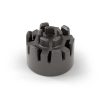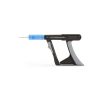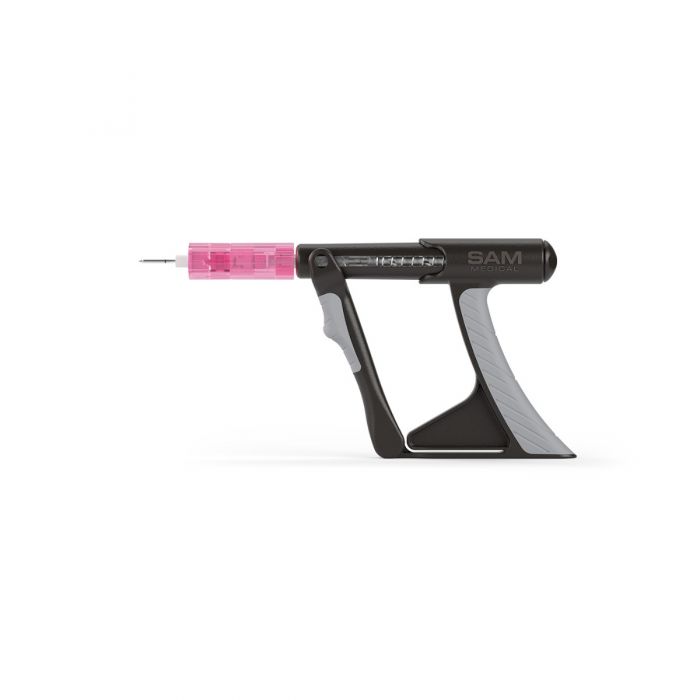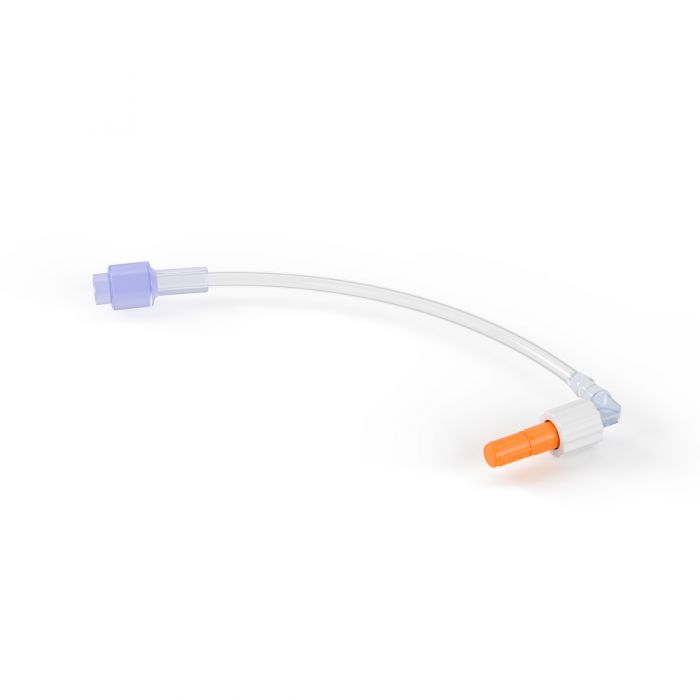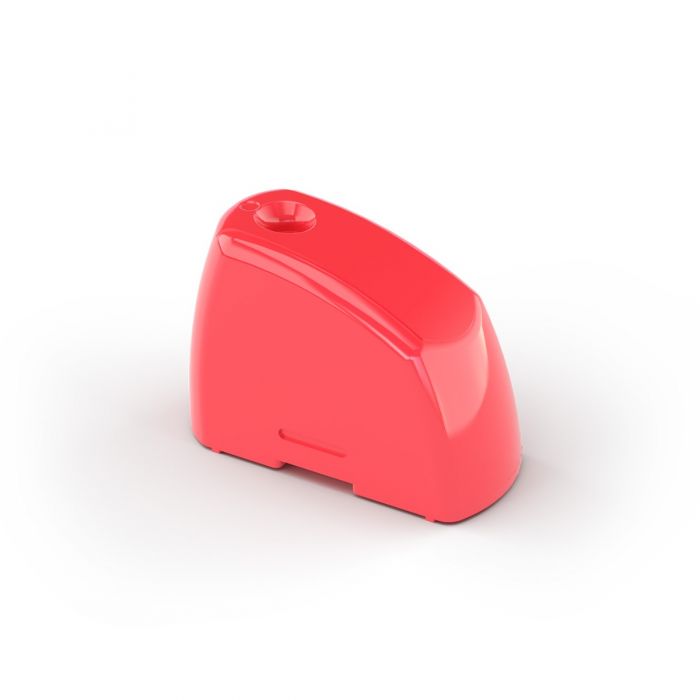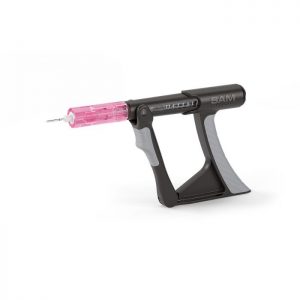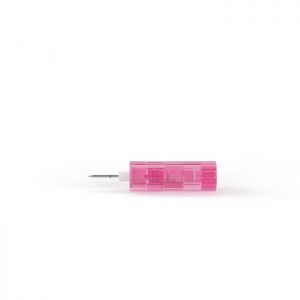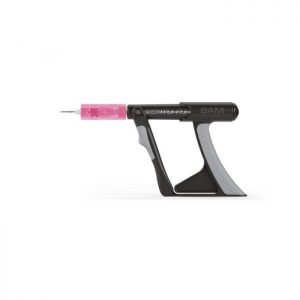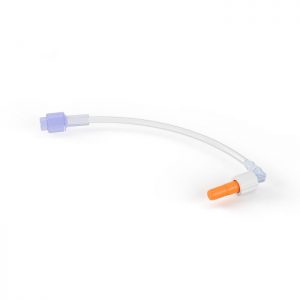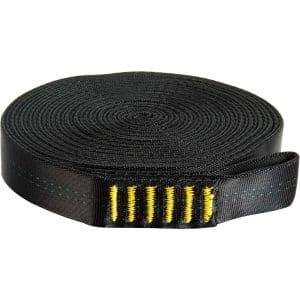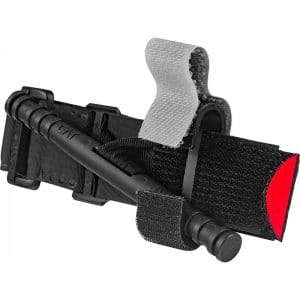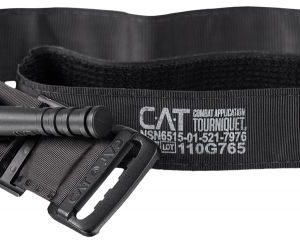SAM IO NEEDLES
₱6,800.00
You are the first :)
- A stylet and catheter assembly secured by a snap-fit connection
- Available in 15 mm, 25 mm and 45 mm needle lengths
- Appropriate for multiple application sites
- Single 15 mm Needle (includes extension tube and NeedleVISE®)
Out of stock
SAM IO Needles colors and depth indicators adhere to industry standards for ease of adoption, and the devices are designed as a stylet and catheter assembly secured by a snap-fit connection. The 15 gauge SAM IO Needles come in 15 mm, 25 mm, and 45 mm lengths to accommodate multiple application sites and a broad range of patient demographics.
SAM IO Needles utilize a 5-point grind which is intended to aid in insertion with the SAM IO Driver, or through manual insertion by hand. Needles are sold individually or in packs of five. Each sterile-packed SAM IO Needle includes a NeedleVISE® and Extension Tube. Driver, Stabilizer, and Adaptor options are sold separately.
About the SAM IO:
SAM IO is a manually operated intraosseous access system. Catheter placement is achieved by continuously actuating (repeatedly compressing) the driver’s trigger assembly while gently guiding needle assembly into position. Repeated, full trigger actuation creates rotational spin of the needle assembly which, when combined with gentle downward pressure, results in controlled IO placement. Once needle assembly is properly positioned, the stylet is removed to expose standard Luer-lock for extension set connection. With the extension set connected, aspiration verification, flushing and selected treatment(s) may commence. The SAM IO system is designed to be intuitive for current IO users, featuring color coding and depth indicators which match industry norms.
The SAM IO is designed for effective IO placement in both adult and pediatric patients. NOTE: When determining the anatomical site and needle length for intraosseous access, patient age and physiology should be considered per protocol or standard, and on a case by case basis based on clinical judgement. Common insertion sites include:
- Proximal Humerus (left or right)
- Proximal Tibia (left or right)
- Distal Tibia (left or right)
- Distal Femur (pediatric patients – see instructions for details)
- Please refer to the manufacturer’s IFU for the SAM IO Needle for recommended insertion sites based on patient variables.
Note: The SAM IO is not intended for sternal application.
SPECS
Dimensions
Related products
Others
Burn Care
Bleeding Control
Bleeding Control
UNCATEGORIES
Bleeding Control
Bleeding Control
Combat Tourniquet

